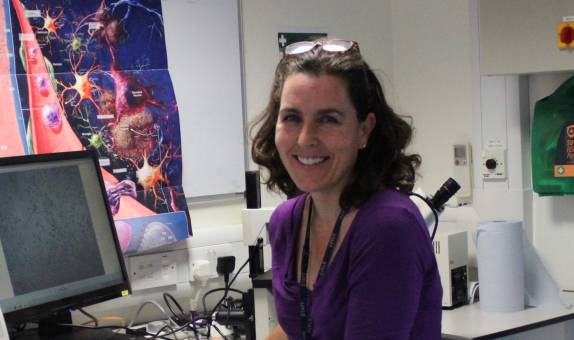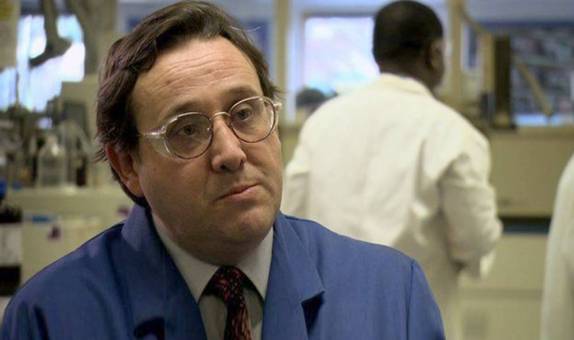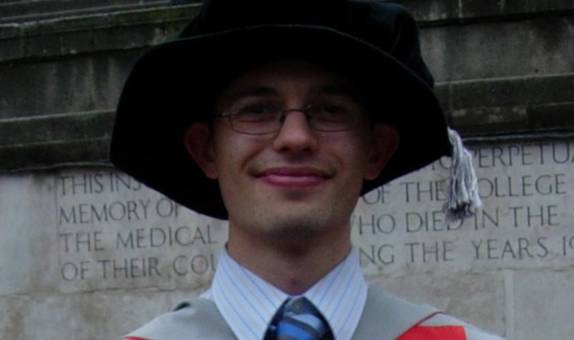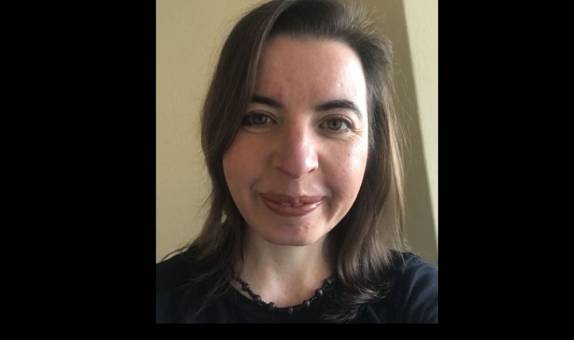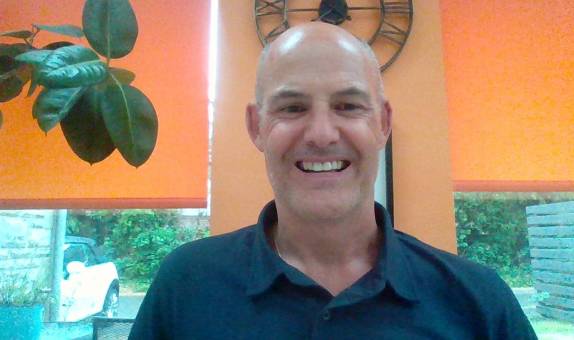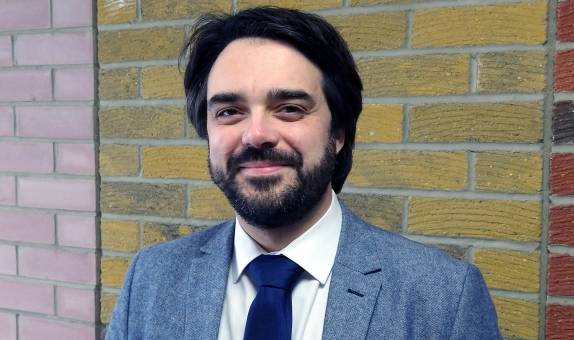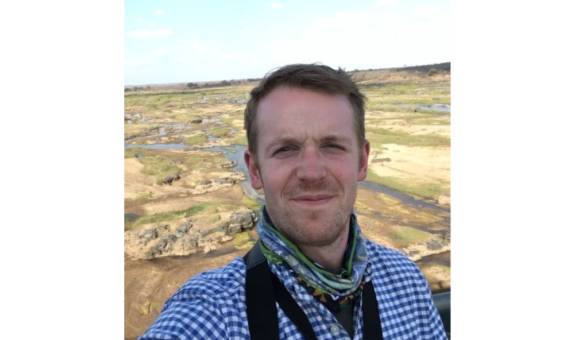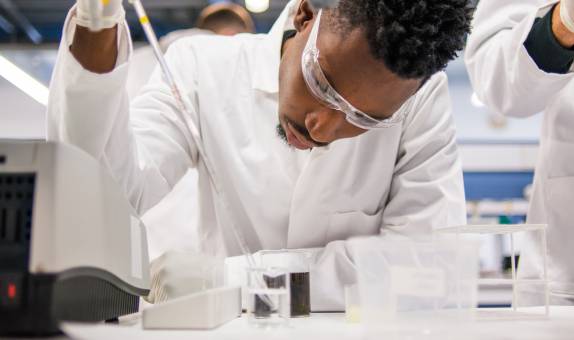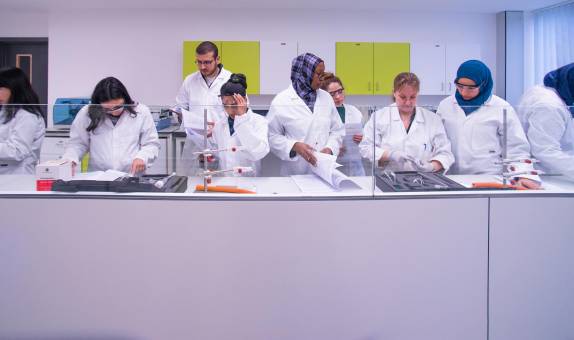Pharmaceutical Science MPharmSci (Hons)

Teaching Excellence Framework (TEF) Gold award
Our commitment to high quality teaching has been recognised with a TEF Gold rating. The University has received an overall rating of Gold, as well as securing a Gold award in the framework's two new student experience and student outcomes categories.
Why choose this course?
Do you see yourself as a research scientist? Working at the cutting edge of discovering, designing and developing new drugs for clinical purposes? If so, this four-year course is ideal.
You'll explore the sources of medicine, how medicines work, how they can be formulated (such as via tablet, cream or inhaler), administered, analysed and tested.
The course shares its first two years with the Pharmaceutical Science BSc (Hons) programme and provides a wide understanding of all aspects of the pharmaceutical industry. In Year 3 you'll deepen your knowledge of natural product chemistry. You'll develop skills for testing and evaluating the safety and effectiveness of pharmaceutical products. In Year 4 you'll develop skills in experiment design, critical analysis, problem-solving and laboratory work.
This course is currently being revalidated for 25/26 entry. We are reviewing our modules to enhance the student-centred learning experience. This includes updating course content to meet industry needs and ensuring you develop the skills needed to become a future-proof graduate.
| Attendance | UCAS code | Year of entry |
|---|---|---|
| 4 years full time | B204 | 2025 |
Please note: Teaching on this course may take place on more than one KU campus.
| Main Location | Penrhyn Road |
Reasons to choose Kingston University
- You'll gain extensive practical experience in new laboratories after a £6.8 million investment.
- Modules on this course have been accredited by the Academy of Pharmaceutical Sciences (APS)
- You'll take advanced postgraduate-level modules in the manufacture and clinical trials of medicines and topics in drug design, discovery and development.
What you will study
Year 1
Year 2
Year 3
Year 4
Years 1 and 2 are shared with the Pharmaceutical Science BSc(Hons) course.
Year 1 introduces biology, chemistry and physiology for pharmaceutical science.
Core modules
Introduction to Spectroscopy and Experimental Techniques
30 credits
This module provides an introduction to basic laboratory techniques and procedures such as weighing and volumetry, proceeding to descriptions of laboratory manipulations, elemental analysis and general practical knowledge. You will be introduced to spectroscopic techniques in terms of simple theory, as well as a practical introduction to the identification of simple organic compounds. These compounds will sometimes be synthesised in the course of the practical element of the module, which will also serve to demonstrate laboratory techniques of preparation and purification of these organic materials.
Academic Skills for Molecular Sciences
30 credits
You will gain a thorough grounding in mathematical, presentation, reporting and IT skills to support your scientific progress. This module will help you develop effective learning strategies. It provides the foundation for your personal and career development.
This module will introduce you to Future Skills through engagement with Navigate. You will be supported by themed tutor meetings enabling you to work on tasks to develop your graduate attributes.
Foundation Chemistry
30 credits
This module will refresh your foundation knowledge of the core chemistry concepts required for progress within the field of pharmaceutical science and biochemistry. It includes atomic and molecular structure within various bonding models, the principles of functional group interconversions and synthesis. You will also be introduced to the laws of kinetics and thermodynamics and apply them to simple chemical and pharmaceutical systems.
Bioscience 1
30 credits
This module will cover cell biology and microbiology, particularly with reference to human physiology and the pathological microorganisms affecting it. You will be introduced to the fundamental principles of the biochemical processes that occur within the cell, including prokaryotic and eukaryotic cell structure, basic tissue types, microbial entities and organisms such as viruses, bacteria and fungi.
You will progress from the subcellular level through to the cellular and then to tissues and a few selected organ systems; examining the mechanisms that maintain homeostatic balance.
Year 2 places emphasis on organic and medicinal chemistry and develops practical skills, especially in pharmaceutical analysis - important in relation to the actions and characterisation of drugs. Building on the pharmaceutical chemistry learned in Year 1, you will study the properties and formulation of pharmaceuticals. You will also study the effect of drugs in living systems and the principles of the immune system. There will be an introduction to micro-organisms in relation to human disease, their control and safe working practices. Year 2 features a focus on experimental pharmaceutical chemistry, developing skills for conducting independent laboratory investigations. There is also the opportunity to develop other transferable skills, important to your employability and career planning.
Core modules
Organic and Medicinal Chemistry
30 credits
You will expand your knowledge of both Organic Chemistry and Medicinal Chemistry subject areas and introduces important principles, reactions and mechanisms in organic chemical reactivity as well as basic mechanisms of drug action. You will develop your understanding of the methodology of organic synthesis following concepts introduced in Year 1, and study important organic chemistry topics such as carbanion reactivity of carbonyl compounds, the reactions of aromatic and heteroaromatic compounds, stereochemistry, asymmetric synthesis and retrosynthesis
It also introduces the specific reasons why a small amount of a drug molecule can exert a complex biological response. It uses examples from a range of medicinal areas in order to illustrate these key processes as well as giving an introduction on the ideas of drug design and the role this plays in the modern pharmaceutical industry. This module also gives you experience of using spectroscopic techniques for chemical structure elucidation.
Pharmacology and Pharmaceutics
30 credits
This module incorporates elements of pharmacology, toxicology, immunology and pharmaceutics (including formulation science). The module gives a grounding in the processes of absorption, distribution, metabolism and excretion which underlies many of the toxicological and pharmacological effects of biological agents. You will explore how drug formulation affects the bioavailability of a drug and how the physiology of the human system affects these processes. You will explore recent developments in drug development involving antibodies as therapeutic agents, and the major factors involved in the effective and safe delivery of therapeutic agents to human populations. You will also examine the effects and response to environmental, chemical and microbial toxins.
Throughout the module, you will discuss the various types of dosage form design and explain the relevant physico-chemical principles involved in the choice of dosage form.
Analytical Science
30 credits
This module introduces you to the applications of analytical science within analytical biochemistry, clinical chemistry, forensic analysis and the pharmaceutical sciences. It allows you to build your knowledge, practical skills and interpretation skills whilst implementing the analytical process model using scenario-based learning. You will learn the principles of the stages within the analytical process model, including understanding sampling methods, sample preparation, errors and statistics and data recording in analytical science. This module will enable you to select and optimise appropriate analytical methods to solve problems in biomedical, forensic and pharmaceutical cases.
Practical and Research Skills in Pharmaceutical Science
30 credits
This module allows you to develop laboratory techniques and data interpretation skills through experiments that include organic synthesis, product characterisation and evaluation of various pharmaceutical formulations and dosage forms. It also develops additional research skills such as literature searches, review writing and digital skills that will be developed through the use of chemistry specific software packages (Chemdraw, Scifinder). You will be given the opportunity to develop higher level graduate attributes that are important to improving your employability, such as planning, teamwork, and presentation skills. In addition, the range of potential careers open to Pharmaceutical Science graduates will be covered in this module.
This module is designed to develop your graduate attributes. You will reflect on your existing areas of strength and identify areas for further development. The Future Skills Explore Learning Outcomes are delivered in this module.
Year 3 shares some modules with our Pharmaceutical Science BSc(Hons) degree, including a module that deepens your knowledge base in natural product chemistry, and another that develops and enhances your analytical skills, crucial for the testing and evaluation of the safety and effectiveness of pharmaceutical products.
Core modules
Organic and Natural Product Chemistry
30 credits
This is a core module for Chemistry and M. Pharm. Sci degree courses, and is optional for the BSc. Pharm. Sci. Degree course. The module builds upon and develops further, topics introduced in the earlier level 5 module CH5002, for example, stereoselective synthesis and retrosynthetic analysis. In addition, new topics are introduced such as pharmacognosy, combinatorial chemistry, photochemistry, free radical chemistry and pericyclic reactions. The lectures and associated workshops will encourage the development of problem solving and team working skills, in order to prepare you for your future careers. These skills will be practised during laboratory-based exercises, where you will participate in group "mini-projects" which will be assessed using a range of methodologies that include oral presentations, report writing and poster presentations.
Drug Development
30 credits
You will learn about the pharmacology involved in the treatment of various disease types and details the synthetic chemistry behind the development of drug molecules and evaluates the structure activity effects from pharmacodynamic and pharmacokinetic perspectives. The module also outlines the process for intellectual property protection and exploitation, toxicological events that might affect the body and the body's immunological response to toxic insult or disease. You will gain a sound knowledge of the mode of action of a range of modern drugs against a number of disease states. You will critically evaluate the pharmacodynamic and pharmacokinetic effects of changes to the structure of certain drugs and suggest appropriate synthetic methodology to accomplish this. You will be able to describe a range of toxins and their effects on the body and how the body may respond. You will learn the process for patent protection and the steps involved in bringing a drug from bench to bedside.
Topics in Pharmaceutical Science
30 credits
This module introduces various aspects of chemical and pharmaceutical industry pertinent to your future career and aims to cover a wide range of topics covering Drug Delivery, Polymers and Biomaterials, patents, intellectual property, health and safety, and legislation. Your learning in this module is reinforced by workshops to develop your communication, teamwork and independent learning skills.
Optional modules
Advanced Analytical Science
30 credits
This is a core module of MPharmSci (Hons) Pharmaceutical Science and MChem (Hons) Chemistry and an option for BSc (Hons) Chemistry and BSc (Hons) Pharmaceutical Science students. It takes forward the themes of spectroscopy that were introduced in the previous modules and develops a more rigorous theoretical footing and advanced applications. In parallel to this, analytical themes are introduced covering radiochemical analysis, electroanalysis and thermal analysis.
In Year 4, you will spend half your time working on your research project, enhancing your skills in experiment design, critical analysis, problem solving and laboratory work. Your project also provides an opportunity to display initiative and creativity. In addition, you will take advanced masters-level modules in the manufacture and clinical trials of medicines and topics in drug design, discovery and development.
Core modules
Research Project
60 credits
During your project module, you will gain the necessary conceptual and practical skills to conduct your research. You will also develop your communications skills to disseminate of the outcomes of your results and findings. Where possible, research should be published in a peer-reviewed journal.
Topics in Drug Design, Discovery and Development
30 credits
You will explore the synthetic chemistry behind the development of drug molecules and evaluates quantitatively the structure activity effects from pharmacodynamic and pharmacokinetic perspectives.
You will learn about advanced experimental techniques in spectroscopy, and chromatography will be discussed in the context of drug discovery and development. You will also cover intellectual property protection and risks of exploitation.
Manufacture and Clinical Trials of Medicines
30 credits
This module introduces you to the different phases and types of clinical trials and the associated legal, regulatory and ethical issues. This includes statistical data analyses and how to manage and review clinical trial data in relation to evidence-based medicine. The technology and application of the manufacture of various medicine formulations are discussed and the place of biotechnological products introduced. The module also covers elements of medicines regulation with particular reference to the UK and European Union. Regulations are dealt with both within a general framework and specific areas including manufacturing, dealing with specialist products, regulation in clinical use, and licensing.
Please note
Optional modules only run if there is enough demand. If we have an insufficient number of students interested in an optional module, that module will not be offered for this course.
Future Skills
Knowledge to give you the edge
Embedded within every course curriculum and throughout the whole Kingston experience, Future Skills will play a role in shaping you to become a future-proof graduate, providing you with the skills most valued by employers such as problem-solving, digital competency, and adaptability.
As you progress through your degree, you'll learn to navigate, explore and apply these graduate skills, learning to demonstrate and articulate to employers how future skills give you the edge.
At Kingston University, we're not just keeping up with change, we're creating it.

Entry requirements
Teaching and assessment
Scheduled learning and teaching on this course includes timetabled activities including lectures, seminars and small group tutorials.
It may also include placements, project work, practical sessions, workshops, conferences and field trips.
What our students say
Who teaches this course
This course is delivered by the School of Life Sciences, Pharmacy and Chemistry.
The School of Life Sciences, Pharmacy and Chemistry offers an outstanding and diverse portfolio of undergraduate and postgraduate programmes in biological and biomedical sciences, chemistry, forensic science, pharmacy, pharmacological and pharmaceutical sciences, and sport science and nutrition.
We've invested heavily in the development of new facilities including laboratories for teaching and research to provide students with access to ultra-modern equipment in a wide range of teaching facilities.
Postgraduate students may run or assist in lab sessions and may also contribute to the teaching of seminars under the supervision of the module leader.
Facilities
There is a wide range of facilities for practical work at our Penrhyn Road campus, where this course is based. You will have access to a modern environment with the latest equipment, including:
- the £9.8 million Eadweard Muybridge building with state-of the art laboratories;
- specialist equipment, such as:
- gas and liquid chromatography;
- electron and confocal microscopy;
- a range of spectrometers, including mass spectrometers, infrared spectrometers and nuclear magnetic resonance spectrometers;
- nuclear science equipment;
- thermal analysis;
- x-ray diffractometers; and
- electrochemical analysis;
- computing laboratories and a team of IT technicians to offer assistance.
Course fees and funding
Additional costs
Depending on the programme of study, there may be extra costs that are not covered by tuition fees which students will need to consider when planning their studies. Tuition fees cover the cost of your teaching, assessment and operating University facilities such as the library, access to shared IT equipment and other support services. Accommodation and living costs are not included in our fees.
Where a course has additional expenses, we make every effort to highlight them. These may include optional field trips, materials (e.g. art, design, engineering), security checks such as DBS, uniforms, specialist clothing or professional memberships.
After you graduate
Pharmaceutical science is a growth area with good job prospects. Graduates work in areas such as research, development, regulatory affairs and pharmaceutical analysis. They also frequently progress to study PhDs.
What our graduates say
Key information set
The scrolling banner(s) below display some key factual data about this course (including different course combinations or delivery modes of this course where relevant).
Course changes and regulations
The information on this page reflects the currently intended course structure and module details. To improve your student experience and the quality of your degree, we may review and change the material information of this course. Course changes explained.
Programme Specifications for the course are published ahead of each academic year.
Regulations governing this course can be found on our website.






